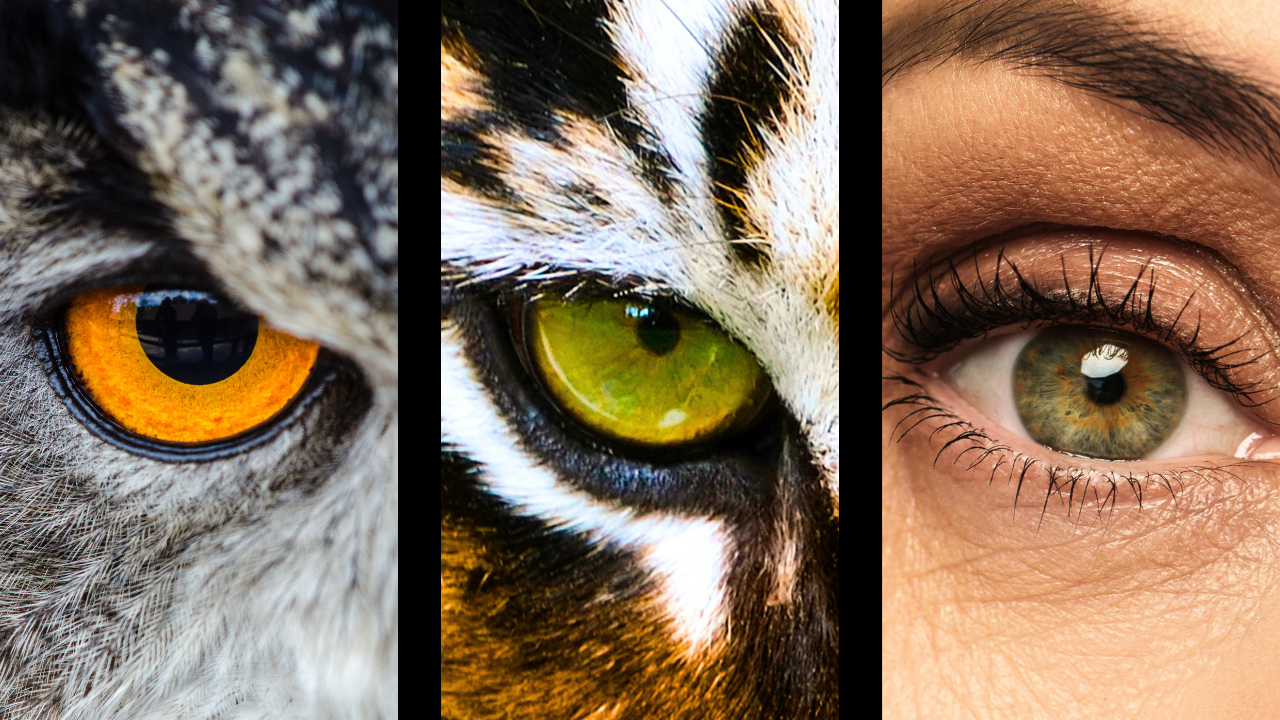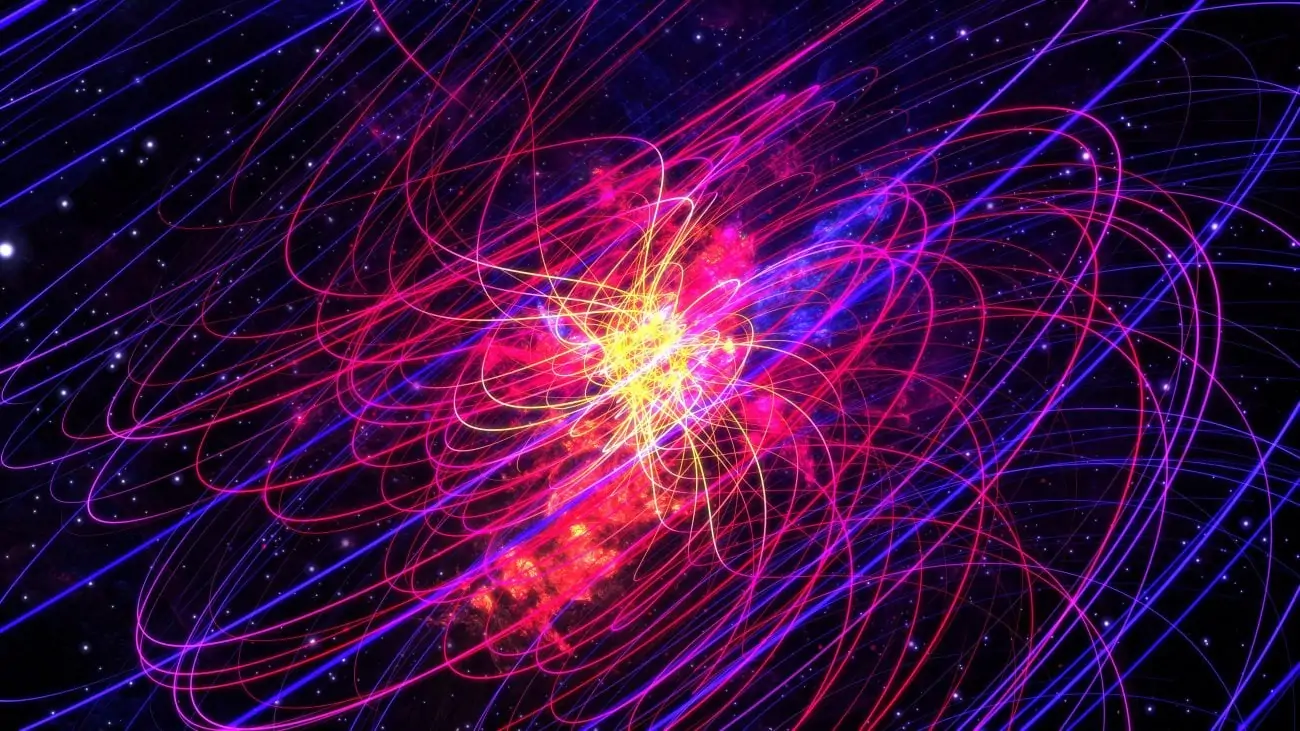Olympic Success, Personal Tragedy
Michael Phelps is the greatest Olympian of all time. The winner of 28 gold medals, he stands alone at the highest pinnacle of sport. His identity was forged by his accolades and success as an extraordinary swimmer. However, in a 2018 interview, Phelps surprised the world when discussing the aftermath of his gold medal Olympic triumphs:
“Really, after every Olympics I think I fell into a major state of depression,” said Phelps when asked to pinpoint when his trouble began. He noticed a pattern of emotion “that just wasn’t right” at “a certain time during every year,” around the beginning of October or November, he said.
And there was a photo taken in fall 2008 — just weeks after he’d won a record eight gold medals at the Beijing Olympics — that showed Phelps smoking from a bong. He later apologized and called his behaviour “regrettable.”
Drugs were a way of running from “whatever it was I wanted to run from,” he said. “It would be just me self-medicating myself, basically daily, to try to fix whatever it was that I was trying to run from.”
Phelps punctuated his wins at the Olympic games in 2004, 2008 and 2012 with self-described “explosions.”
The “hardest fall” was after the 2012 Olympics, said Phelps. “I didn’t want to be in the sport anymore … I didn’t want to be alive anymore.”
What that “all-time low” looked like was Phelps sitting alone for “three to five days” in his bedroom, not eating, barely sleeping and “just not wanting to be alive,” he said.
Michael Phelps: ‘I am extremely thankful that I did not take my life’:
CNN, January 20 2018.
Phelps trained his entire life to become a successful athlete, yet despite fulfilling everything he could ever have dreamt of, he still described his life as not worth living.
Not only did Phelps achieve extraordinary success and accolades, but he also became extremely wealthy as a result.

How can we make sense of Phelps’ story? He had it all – money, fame, and achievement. So many of the things that society says will make us happy. And yet, he still felt like something was deeply deeply wrong. What’s going on here?
To answer this, we can first look at whether Phelps’ story can be generalised. Is it really true that money doesn’t make you happier? The question was explored by Angus Deaton, a Nobel Laureate in economics, whose famous 2010 study with Daniel Kahneman discovered that once one reaches a certain level of annual income — about $100,000 in today’s money — earning more money does not make one happier on a day-to-day basis.
In other words, once we reach a certain level of wealth, manage to escape poverty and achieve security, attaining further material benefits does not increase our level of happiness. Thus, limitless materialism does not lead us to limitless happiness.
What about achievement though? Are there other examples of people who reach the top of their field and find themselves unfulfilled and unhappy? Well, the numerous celebrities who have opened up about their battles with depression and anxiety lies testament to this. Not only do many such celebrities possess extraordinary amounts of wealth and prestige, they also enjoy social connection, strong friendships, wonderful life experiences, and even fulfilling relationships and children.
With these kinds of examples, many have begun to realise that money, wealth and fame, is not everything, and cannot by itself create the sense of fulfilment and purpose that they desire. So where else are people turning?
Altruism & Activism
In the last decade or so, there has been a huge revival in political and social activism, especially among young people, and even among celebrities. By striving to achieve a better world, such people hope that they can live the meaningful life that they wish to live. Be it dedicating themselves to ‘climate justice’, minority rights, or economic redistribution, many people’s whole identity has been subsumed by the culture of activism within which they exist.

While this is admirable, activism and even altruism can be a jading experience. Without a personal framework within which to manage the inevitable frustrations and disappointments that come with the area, many people struggle to cope. And while it is true that many young people may feel better if policies that addressed their particular cause were implemented, the reality is that there exist a multitude of social, economic and domestic problems that plague society today. Even if all problems relating to climate change resolve, many of the youth would become worried next by geopolitical conflict, social injustice or other such difficulties that are all too visible via our media. For the individual, it can all become too much to take on — too much to bear, no matter how noble the intention.
I have seen this first-hand with many of my millennial friends. They pour their efforts into activism, pin their identity to a cause, and when they are faced with insurmountable difficulties, they fall back, dejected. Their worries about the future turns into a general pessimism about life — a feeling that humanity is doomed, that having children may be harmful or pointless, and that things will never get better.
And even if all social problems in the world were fixed, would everyone feel magically contented? We have already seen that people who achieve everything they ever wanted in this world don’t feel content. Like Michael Phelps and so many of the super-rich, there is a general sense of aimlessness and purposelessness. It is all too possible that social justice causes are like spiritual opium. When they are achieved, they are lost, and we are still left wondering what our lives are really for. Was it all just for ‘equality’?

Protests and marches have been a common feature of recent years
We are therefore left in a bind. Michael Phelps and so many celebrities have taught us that career, fame, money and social connection does not alone bring true contentment. Even dedicating one’s self to an altruistic cause doesn’t bring happiness, not only because failure is so frequent, but because fixing an injustice doesn’t answer that fundamental question of why.
Why are we on this earth? What are we supposed to be doing? How can we really be fulfilled?
The Name of Which He Has Forgotten…
I believe that our search for fulfilment in so many places — a career, activism, relationships or anything else — gives us the beginning of an answer. The universal search for fulfilment through unity to something greater than ourselves tells us that this yearning is intrinsic; something we are all born with. But in what can it be truly fulfilled?
On this, the founder of the Ahmadiyya Muslim Community, Mirza Ghulam Ahmadas, has given profound insight:
Of the natural conditions of man is his search after an Exalted Being towards Whom he has an inherent attraction. This is manifested by an infant from the moment of its birth. As soon as it is born, it displays a spiritual characteristic that it inclines towards its mother and is inspired by love of her. As its faculties are developed and its nature begins to display itself openly, this inherent quality is displayed more and more strongly. It finds no comfort anywhere except in the lap of its mother. If it is separated from her and finds itself at a distance from her, its life becomes bitter. Heaps of bounties fail to beguile it away from its mother in whom all its joy is concentrated. It feels no joy apart from her. What, then, is the nature of the attraction which an infant feels so strongly towards its mother?
It is the attraction which the True Creator has implanted in the nature of man. The same attraction comes into play whenever a person feels love for another. It is a reflection of the attraction that is inherent in man’s nature towards God, as if he is in search of something that he misses, the name of which he has forgotten and which he seeks to find in one thing or another which he takes up from time to time. A person’s love of wealth or offspring or wife or his soul being attracted towards a musical voice are all indications of his search for the True Beloved. As man cannot behold with his physical eyes the Imperceptible Being, Who is latent like the quality of fire in everyone, but is hidden, nor can he discover Him through the mere exercise of imperfect reason, he has been misled grievously in his search and has mistakenly assigned His position to others.
The Philosophy of the Teachings of Islam
If God is Real…
This realisation is of immeasurable importance. If true, it would mean that we are created by a Higher Consciousness. If such a Being who created us exists, then suddenly the lack of purpose that many feel disappears. For God would not have placed us on the earth for no reason whatsoever. Even human beings, comparatively lower consciousnesses, do not perform actions completely aimlessly.
Thus if God is real, then we would not simply be an accidental by-product of an accidental Big Bang, with no long-term prospects except the bleak prospect of eternal nothingness after our inevitable death. Rather, our happiness and sorrow, our trials and our successes, would all mean something. There would be a real purpose to life: to become spiritually near to that Being who created us.
Searching for this Ultimate Being, and directing our lives with Him in mind would provide far more fulfillment, and a higher sense of purpose, than any worldly activity can.

If God is real, then we would no longer fear death, as death would no longer be a pathway to nothingness, but rather a gateway to an even higher state of consciousness — just as the foetus moves from its existence in the womb to a higher place — the world in which you and I reside. After death would be a place where we are spiritually nearer to God, and where He can recompense us for the sufferings and trials we have had to endure in this world. We would no longer worry about attaining validation or love from others, as our relationship with God would provide us with all the validation that we need. When we feel helpless, we would know we had a friend that we could count on, and our prayers to God, the All-Powerful, could save us from feeling despair or helplessness.
If God is real, then those individuals such as Michael Phelps would perhaps feel more content, even during periods away from the pool.
Peace for Activists
And what about the activists? These are people who perhaps recognise the innate sense of higher purpose in our lives, and they try to fulfill it via campaigning to improve the world. However, it is easy to despair when things always seem to be getting worse and worse. Indeed, that may be a rational and reasonable response in a world where nothing is guaranteed.
But if the central claims of religion are true, then the picture completely transforms. We could continue to campaign for good causes, become activists and try to fight for a better tomorrow, but we would not get overwhelmed by the scale of the task or the disappointments that we would face. We would help others and do good works in the image of God, serving the Creator by serving His Creation.

So, while our efforts would be even more inspired, a strong faith in God frees us from the burden of feeling as though changing the world is purely our responsibility. Our efforts and our sincerity are what we will be judged on. The actual end-results and outcomes are for God to enact. The laws that God has made involve cycles of good and evil, of ease and struggle, of joy and sadness. This applies both on an individual level as well as on a societal and global level. Thus, when things do not go our way, we can be reassured that they will indeed improve, however it will happen on God’s timescale, not ours.
Such a perspective liberates us from bearing the burdens of things outside our control — the end outcomes — and enables us instead to focus on what is within our control: the efforts that we put in and the good intentions that we have.
Dealing With Suffering
And leave alone the Olympic swimmers or the social justice activists. The ordinary stresses and strains of regular, 9-5 humans can be almost unbearable. Life is marked by suffering no matter who we are, no matter where we’re from. For the atheist, this suffering is senseless, or perhaps the cold result of the law of the jungle. But for the believer, managing trials and difficulties can psychologically be much easier. As the Prophet Muhammad, peace be upon him, said, both worldly victories and defeats can ultimately lead to blessings and rewards from God.
“Wondrous is the case of a believer; there is good for him in everything, and it is so for him alone. If he experiences something agreeable, he is grateful to God and that is good for him; and if he experiences adversity, he is steadfast and that is good for him because he earns merit for his steadfastness.’ (Sahih Muslim, 2999).
This perspective transforms life. Suddenly, every moment of suffering is an opportunity of showing your steadfastness to God, a moment of appreciation that everything fades; everything except God.

The Decline of Faith
Today, too many young people have rejected the concept of faith — for understandable reasons. They see the scandals of faith leaders, they see the backward practices of individuals and groups claiming to be religious, they see acts of terrorism and extremism, supposedly inspired by holy scriptures. They see contradictions between science and certain religious beliefs.
However, all these reasons are related to how humans interpret, twist, and pervert religion and belief in God for material or worldly gain. They do not provide us with any actual insight as to whether God actually exists. This is the first question, and all other questions regarding which doctrine or belief system to follow, if any, come after.
Is God Real?
We have reasons to believe that God should exist.
The exquisite fine-tuning of the universe, and the elegance and beauty in its design point to the existence of a conscious creator. The existence of life itself implies the existence of God, as death cannot create life, only life can create life.
We also see the fact that hundreds of thousands of people over history, in disparate areas across the world, have claimed that God spoke to them and answered their prayers, and such people have brought teachings and moral codes that human societies live by even today. Prophets of God revolutionised entire nations, despite often emerging from a low and insignificant status in the eyes of others’ societies.
Jesus was one such example, and the Prophet Muhammad, peace be upon him, another. Socrates, in the West, also claimed to receive divine revelation — and he is known as the Father of Western Philosophy. Confucius and Buddha both claimed to have contact with One God. Without realising it, both in the East and West, the foundations of our global society have all been laid by the wisdom and thought of religious figures and Prophets of God.

Are these not reasons to at least investigate, with an open mind, whether God might exist? The benefits of discovering such a thing can be profound and life-changing, while a life without God could lead us to regret and despair.
The Method
How to go about searching for God? It is easy to tell someone to pray, but how practically to do it? People find God in different ways, and God reveals Himself to individuals as per His own wishes. However, using divinely-revealed scriptures in helping us to search for Him is a good place for one to start. The below, therefore, is one potential step-by-step guide. It contains a blueprint, based on the documented methods of those who have claimed to be Prophets of God and enacted moral and spiritual transformations of the world.
Initial Steps
Mindset:
- Be humble and not arrogant in your search – after all God is a higher Being than we are.
- Have an open-mind – do not come to any conclusions before having actually started.
Step 1 — Prayer
- Set aside ten minutes every evening, preferably right before you go to bed, to pray.
- First, wash your hands, face and arms (or have a full shower). Physical cleanliness is important for spiritual cleanliness.
- Next, find a clean private place to sit (e.g., your bedroom). Make a resolve that you will spend the next ten minutes in a state of focus and concentration. Imagine that you are literally sitting in front of God, or if this is not possible for you, imagine that God can see and hear you. Start by reciting the following prayer seven times. This is a prayer that is well known in Islam, however has a universal nature, and does in itself align with a specific theological belief system. Parts of this prayer are also prominent in other belief systems. Feel the prayer in your heart as you recite it:
In the name of God, the Gracious, the Merciful.
All praise belongs to God, Lord of all the worlds.
The Gracious, the Merciful.
Master of the Day of Judgment.
Thee alone do we worship and Thee alone do we implore for help.
Guide us on the right path –
The path of those on whom Thou has bestowed Thy blessings, those who have not incurred Thy displeasure, and those who have not gone astray.
- After this, pray in your own words – addressing God – that if He exists, He should show you a sign or indication that will convince you. Pray for anything else that you feel – for example the alleviation of any current difficulties, the good health of you and your loved ones, forgiveness from Him for any mistakes you may have made, and whatever else springs from your heart.
- Finish your prayer, and preferably continue to spend the rest of the evening in a calm state, or else if you are praying just before bed, then retire to bed straight after.
- If you feel so inclined, you can conduct this ten-minute routine during other parts of the day also – for example in the morning before you start your day, or in the afternoon when you have returned home from work.

Step 2 – Charity/Good Moral Action
- Make an intention, during this time, to focus on your moral actions and try and be the best person that you can. This may involve demonstrating extra care and compassion towards others, suppressing anger and preferring to forgive, and helping others wherever possible. After all, kindness to God’s creatures is in itself a form of worship.
- Give extra money to charity – ideally a small amount each day.
Step 3 — Remember God Regularly
- In the course of your daily routine, whenever you remember, every time you are about to initiate any task (e.g., getting out of bed, about to start eating, leaving your house, starting a piece of work etc) – recite the following:
- In the name of God, the Gracious, the Merciful.
- Such a prayer means that God, if He exists, will bless your actions and tasks. You may see a tangible impact in your day-to-day life from this.

Conclusion
Continue this routine for 40 days; this combination of evening prayer, regular remembrance of God, striving to do good actions towards others while refraining from bad deeds. Observe the effects that this has upon your life.
Such a routine is not particularly taxing, however has the potential to be transformative. The world cannot lead us to contentment or fulfilment, even when we try to find our own ways of making meaning. Belief in God, and certainty in His existence, offers a path to meaning, purpose, and lasting contentment amidst a confusing and unjust world. It can provide a further springboard to try and right the injustices that permeate across our world today, while giving us a framework and outlet to deal with our own disappointments and difficulties. It can provide us with a true identity, and help us understand our true purpose in life.
Do not be influenced by those who twist religion to serve their own personal ends and commit atrocities or attain worldly power. Such people do not reflect the teachings of the Prophets of God, peace be upon him, who built a better world through peace and through prayer.
After forty days, or sooner, reflect upon the impact that prayer has had on you. Has it made you a better person, a calmer person, a more reflective person? Has God revealed Himself to you? What are your thoughts on faith and spirituality before and after this process? Try it.
After all, in a world of conflict, despair and disappointment, what do you have to lose?











5
This is a great article! Especially the last part on step by step to seek God. In fact, I naturally did all of the recommended steps and this is what led me to the certainty of Islam Ahmadiyya. In addition to charity, I actually also tried to ask forgiveness to people who I have wronged. Any one with a mind of a true seeker will have nothing to lose by trying these steps.
5